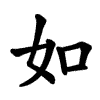Definify.com
Definition 2026
都
都
Translingual
| Stroke order | |||
|---|---|---|---|

| |||
Alternative forms
Note that there are two Unicode z-variants, with code points U+90FD and U+FA26 (the latter is a compatibility variant and should be avoided).
Han character
都 (radical 163 邑+8, 11 strokes, cangjie input 十日弓中 (JANL), four-corner 47627, composition ⿰者⻏)
References
- KangXi: page 1274, character 9
- Dai Kanwa Jiten: character 39497
- Dae Jaweon: page 1773, character 1
- Hanyu Da Zidian: volume 6, page 3776, character 7
- Unihan data for U+90FD
- Unihan data for U+FA26
Chinese
|
simp. and trad. |
都 | |
|---|---|---|
Glyph origin
| Characters in the same phonetic series (者) (Zhengzhang, 2003) | |
|---|---|
| Old Chinese | |
| 觰 | *rtaːʔ, *rtaː |
| 諸 | *tjaː, *tja |
| 者 | *tjaːʔ |
| 堵 | *tjaːʔ, *taːʔ |
| 赭 | *tjaːʔ |
| 撦 | *l̥ʰjaːʔ |
| 扯 | *tʰjaːʔ |
| 闍 | *djaː, *taː |
| 奢 | *hljaː |
| 鍺 | *toːlʔ |
| 都 | *taː |
| 醏 | *taː |
| 覩 | *taːʔ |
| 睹 | *taːʔ |
| 暏 | *taːʔ |
| 賭 | *taːʔ |
| 帾 | *taːʔ |
| 楮 | *taːʔ, *tʰaʔ |
| 屠 | *daː, *da |
| 瘏 | *daː |
| 廜 | *daː |
| 鷵 | *daː |
| 緒 | *ljaʔ |
| 豬 | *ta |
| 猪 | *ta |
| 瀦 | *ta |
| 藸 | *ta, *da |
| 櫫 | *ta |
| 褚 | *taʔ, *tʰaʔ |
| 著 | *taʔ, *tas, *da, *taɡ, *daɡ |
| 箸 | *tas, *das |
| 儲 | *da |
| 躇 | *da |
| 櫧 | *tja |
| 藷 | *tja, *djas |
| 蠩 | *tja |
| 煮 | *tjaʔ |
| 渚 | *tjaʔ |
| 煑 | *tjaʔ |
| 陼 | *tjaʔ |
| 翥 | *tjas |
| 署 | *djas |
| 薯 | *djas |
| 曙 | *djas |
| 書 | *hlja |
| 暑 | *hjaʔ |
| 鐯 | *taɡ |
| 擆 | *taɡ |
| 櫡 | *taɡ |
Phono-semantic compound (形聲, OC *taː) : phonetic 者 (OC *tjaːʔ) + semantic ⻏ (“town, city”) – a large city.
Pronunciation 1
- Mandarin
- Cantonese (Jyutping): dou1
- Hakka (Sixian, PFS): tû
- Min Nan (POJ): to͘
- Wu (Wiktionary): tu (T1)
- Mandarin
- (Standard Chinese, Beijing)+
- Pinyin:
- Zhuyin: ㄉㄨ
- Wade-Giles: tu1
- Gwoyeu Romatzyh: du
- IPA (key): /tu⁵⁵/
- (Standard Chinese, Beijing)+
- Cantonese
- (Standard Cantonese, Guangzhou)+
- Jyutping: dou1
- Yale: dōu
- Cantonese Pinyin: dou1
- IPA (key): /tou̯⁵⁵/
- (Standard Cantonese, Guangzhou)+
- Hakka
- (Sixian, incl. Miaoli and Meinong)
- Pha̍k-fa-sṳ: tû
- Hakka Romanization System: du´
- Hagfa Pinyim: du1
- IPA: /tu²⁴/
- (Sixian, incl. Miaoli and Meinong)
- Min Nan
- (Hokkien)
- Pe̍h-ōe-jī: to͘
- Tâi-lô: too
- Phofsit Daibuun: dof
- IPA (Xiamen): /tɔ⁴⁴/
- IPA (Quanzhou): /tɔ³³/
- IPA (Zhangzhou): /tɔ⁴⁴/
- IPA (Taipei): /tɔ⁴⁴/
- IPA (Kaohsiung): /tɔ⁴⁴/
- (Hokkien)
- Wu
- (Shanghainese)
- Wiktionary: tu (T1)
- IPA (key): /tv̩ʷ⁵³/
- (Shanghainese)
| Rime | |
|---|---|
| Character | 都 |
| Reading # | 1/1 |
| Initial (聲) | 端 (5) |
| Final (韻) | 模 (23) |
| Tone (調) | Level (Ø) |
| Openness (開合) | Open |
| Division (等) | I |
| Fanqie | 當孤切 |
| Reconstructions | |
| Zhengzhang Shangfang |
/tuo/ |
| Pan Wuyun |
/tuo/ |
| Shao Rongfen |
/to/ |
| Edwin Pulleyblank |
/tɔ/ |
| Li Rong |
/to/ |
| Wang Li |
/tu/ |
| Bernard Karlgren |
/tuo/ |
| Expected Mandarin Reflex |
dū |
| Baxter-Sagart system 1.1 (2014) | |
|---|---|
| Character | 都 |
| Reading # | 1/1 |
| Modern Beijing (Pinyin) |
dū |
| Middle Chinese |
‹ tu › |
| Old Chinese |
/*tˤa/ |
| English | capital city |
Notes for Old Chinese notations in the Baxter-Sagart system: * Parentheses "()" indicate uncertain presence; | |
| Zhengzhang system (2003) | |
|---|---|
| Character | 都 |
| Reading # | 1/1 |
| No. | 16968 |
| Phonetic component |
者 |
| Rime group |
魚 |
| Rime subdivision |
0 |
| Corresponding MC rime |
都 |
| Old Chinese |
/*taː/ |
Definitions
都
- metropolis; large city
- capital; capital city
- † to make a place the capital city; to establish a capital
- †graceful; elegant
- A surname. Du
Compounds
|
Pronunciation 2
- Mandarin
- Cantonese (Jyutping): dou1
- Hakka (Sixian, PFS): tu / tû / lû
- Min Nan (POJ): to
- Wu (Wiktionary): tu (T1)
- Mandarin
- (Standard Chinese, Beijing)+
- Pinyin:
- Zhuyin: ㄉㄡ
- Wade-Giles: tou1
- Gwoyeu Romatzyh: dou
- IPA (key): /toʊ̯⁵⁵/
-

- (Standard Chinese, Beijing)+
- Cantonese
- (Standard Cantonese, Guangzhou)+
- Jyutping: dou1
- Yale: dōu
- Cantonese Pinyin: dou1
- IPA (key): /tou̯⁵⁵/
- (Standard Cantonese, Guangzhou)+
- Hakka
- (Northern Sixian, incl. Miaoli)
- Pha̍k-fa-sṳ: tu
- Hakka Romanization System: du
- Hagfa Pinyim: du4
- IPA: /tu⁵⁵/
- (Southern Sixian, incl. Meinong)
- Pha̍k-fa-sṳ: tu / tû / lû
- Hakka Romanization System: du / du´ / lu´
- Hagfa Pinyim: du4 / du1 / lu1
- IPA: /tu⁵⁵/, /tu²⁴/, /lu²⁴/
- (Northern Sixian, incl. Miaoli)
- Min Nan
- (Hokkien)
- Pe̍h-ōe-jī: to
- Tâi-lô: to
- Phofsit Daibuun: doy
- IPA (Xiamen): /tɤ⁴⁴/
- IPA (Quanzhou): /tɤ³³/
- IPA (Zhangzhou): /tɤ⁴⁴/
- IPA (Taipei): /to⁴⁴/
- IPA (Kaohsiung): /tɤ⁴⁴/
- (Hokkien)
- Wu
- (Shanghainese)
- Wiktionary: tu (T1)
- IPA (key): /tv̩ʷ⁵³/
- (Shanghainese)
| Rime | |
|---|---|
| Character | 都 |
| Reading # | 1/1 |
| Initial (聲) | 端 (5) |
| Final (韻) | 模 (23) |
| Tone (調) | Level (Ø) |
| Openness (開合) | Open |
| Division (等) | I |
| Fanqie | 當孤切 |
| Reconstructions | |
| Zhengzhang Shangfang |
/tuo/ |
| Pan Wuyun |
/tuo/ |
| Shao Rongfen |
/to/ |
| Edwin Pulleyblank |
/tɔ/ |
| Li Rong |
/to/ |
| Wang Li |
/tu/ |
| Bernard Karlgren |
/tuo/ |
| Expected Mandarin Reflex |
dū |
| Baxter-Sagart system 1.1 (2014) | |
|---|---|
| Character | 都 |
| Reading # | 1/1 |
| Modern Beijing (Pinyin) |
dū |
| Middle Chinese |
‹ tu › |
| Old Chinese |
/*tˤa/ |
| English | capital city |
Notes for Old Chinese notations in the Baxter-Sagart system: * Parentheses "()" indicate uncertain presence; | |
| Zhengzhang system (2003) | |
|---|---|
| Character | 都 |
| Reading # | 1/1 |
| No. | 16968 |
| Phonetic component |
者 |
| Rime group |
魚 |
| Rime subdivision |
0 |
| Corresponding MC rime |
都 |
| Old Chinese |
/*taː/ |
Definitions
都
- all, both (used to indicate that the statement is true for every subject or object)
- (emphasis on subject) even
- (emphasis on object) even, interchangeable with 也 (yě)
- 我身上一分錢都沒有。 [MSC, trad.]
- 我身上一分钱都没有。 [MSC, simp.]
- Wǒ shēnshàng yī fēn qián dōu méiyǒu. [Pinyin]
- I don't even have a single cent.
- 我給她打了四個電話,她一個都沒接。 [MSC, trad.]
- 我给她打了四个电话,她一个都没接。 [MSC, simp.]
- Wǒ gěi tā dǎ le sì ge diànhuà, tā yīge dōu méi jiē. [Pinyin]
- I called her four times, but she answered none of them.
- already
- (Cantonese) as well, also, too
- 我都好好。 [Guangzhou Cantonese] ― Ngo5dou1 hou2 hou2. [Jyutping] ― I'm fine too.
Synonyms
| Dialectal synonyms of 也 (“also, too”) | ||
|---|---|---|
| Variety | Location | Words |
| Classical Chinese | 亦 | |
| Formal (Written Standard Chinese) | 也 | |
| Mandarin | Beijing | 也 |
| Taiwan | 也 | |
| Jinan | 也 | |
| Xi'an | 也 | |
| Wuhan | 也 | |
| Chengdu | 也 | |
| Yangzhou | 也 | |
| Hefei | 也 | |
| Cantonese | Guangzhou | 都、亦 |
| Hong Kong | 都、亦 | |
| Taishan | 亦 | |
| Yangjiang | 也 | |
| Gan | Nanchang | 也 |
| Hakka | Meixian | 也 |
| Miaoli (N. Sixian) | 乜 | |
| Liudui (S. Sixian) | 乜、也 | |
| Hsinchu (Hailu) | 乜 | |
| Dongshi (Dabu) | 乜 | |
| Zhuolan (Raoping) | 乜 | |
| Yunlin (Zhao'an) | 嘛 | |
| Jin | Taiyuan | 也 |
| Min Bei | Jian'ou | 也 |
| Min Dong | Fuzhou | 也 |
| Min Nan | Quanzhou | 也、嘛 |
| Xiamen | 也、嘛 | |
| Zhangzhou | 也、嘛 | |
| Taipei | 也、嘛 | |
| Chaozhou | 也 | |
| Wu | Suzhou | 也 |
| Wenzhou | 也 | |
| Xiang | Changsha | 也 |
| Shuangfeng | 也 | |
Usage notes
- When negating 都, the placement of 不 (bù) is important.
- 不都: not all, not everyone.
- 都不: none, no one
Compounds
|
|
Korean
Hanja
都 • (do) (hangeul 도, revised do, McCune-Reischauer to, Yale to)
- This term needs a translation to English. Please help out and add a translation, then remove the text
{{rfdef}}.